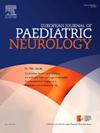Ketogenic diet registry for epilepsy: A cross-sectional feasibility study
IF 2.3
3区 医学
Q3 CLINICAL NEUROLOGY
引用次数: 0
Abstract
We aimed to develop a registry (‘Keto-Reg’) for individuals with epilepsy referred for ketogenic dietary therapy (KDT) and to test feasibility of its implementation. The purpose of the registry is to provide a platform for collaborative research to answer specific research questions regarding long-term clinical and safety outcomes and to identify the most suitable candidates for KDT.
Registry data items were determined via an international Delphi survey of KDT healthcare professionals, and then entered into an electronic platform. Three UK and two other European KDT centres entered data for 10 ‘patients’ and reported on its acceptability and feasibility of use via questionnaire. 25 % of data was validated against medical records. A national survey was distributed and 19 parents and four young people were interviewed about a potential future patient/family section to the registry.
Healthcare professionals from six continents responded to the Delphi (n = 153 round 1, n = 79 round 2); 70 items reached the agreement threshold. Registry data entry was accurate (0.3 % errors identified) and reported to be feasible and acceptable in the short-term. Lack of time was identified as the main barrier to longer-term implementation, with funded hours required. 87 % of the 53 survey responders and all interviewees viewed a patient/family section to be positive and feasible.
We have shown healthcare professional involvement in Keto-Reg to be feasible in the short-term, and have identified what is necessary for the next stage: prospective longitudinal data entry from a larger number of international centres.
生酮饮食治疗癫痫登记:横断面可行性研究
我们的目标是为转诊接受生酮饮食疗法(KDT)的癫痫患者建立一个登记处("Keto-Reg"),并测试其实施的可行性。注册表的目的是为合作研究提供一个平台,以回答有关长期临床和安全结果的具体研究问题,并确定最适合接受生酮饮食疗法的患者。注册表的数据项是通过一项针对生酮饮食疗法医护人员的国际德尔菲调查确定的,然后输入电子平台。英国的三家 KDT 中心和欧洲的另外两家 KDT 中心输入了 10 名 "患者 "的数据,并通过问卷调查报告了数据的可接受性和使用可行性。25%的数据与医疗记录进行了验证。来自六大洲的医疗保健专业人员对德尔菲法(第一轮 153 人,第二轮 79 人)做出了回应;70 个项目达到了一致同意的临界值。登记册数据录入准确无误(0.3% 的错误被确认),据报告短期内可行且可接受。缺乏时间被认为是长期实施的主要障碍,需要资助时间。我们已经证明了医护人员参与 Keto-Reg 在短期内是可行的,并确定了下一阶段的必要条件:从更多的国际中心进行前瞻性纵向数据录入。
本文章由计算机程序翻译,如有差异,请以英文原文为准。
求助全文
约1分钟内获得全文
求助全文
来源期刊
CiteScore
6.30
自引率
3.20%
发文量
115
审稿时长
81 days
期刊介绍:
The European Journal of Paediatric Neurology is the Official Journal of the European Paediatric Neurology Society, successor to the long-established European Federation of Child Neurology Societies.
Under the guidance of a prestigious International editorial board, this multi-disciplinary journal publishes exciting clinical and experimental research in this rapidly expanding field. High quality papers written by leading experts encompass all the major diseases including epilepsy, movement disorders, neuromuscular disorders, neurodegenerative disorders and intellectual disability.
Other exciting highlights include articles on brain imaging and neonatal neurology, and the publication of regularly updated tables relating to the main groups of disorders.

 求助内容:
求助内容: 应助结果提醒方式:
应助结果提醒方式:


